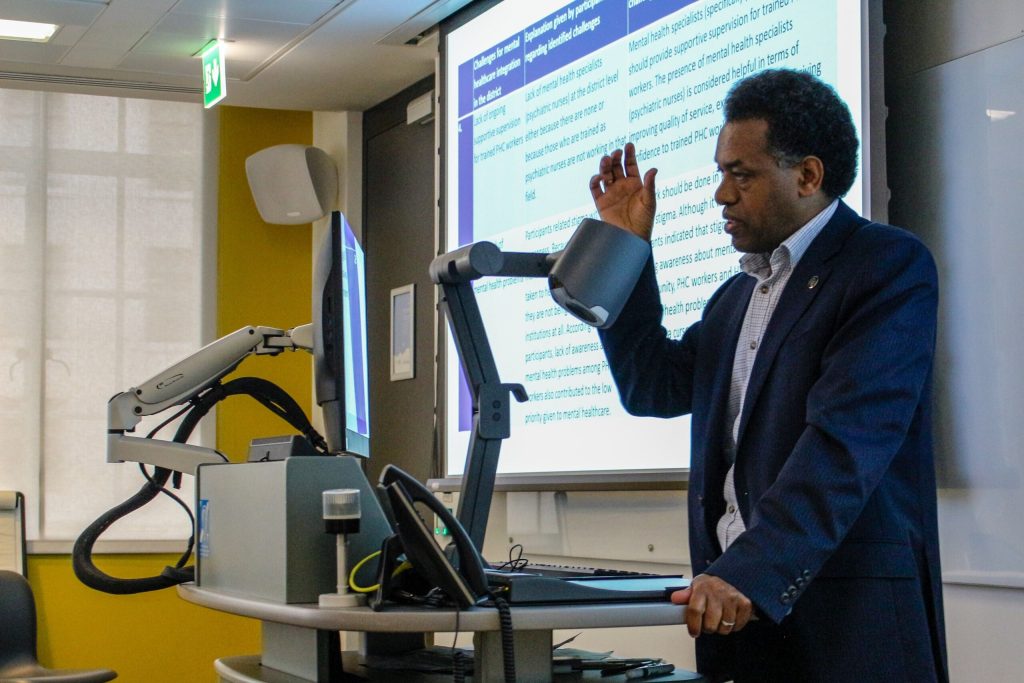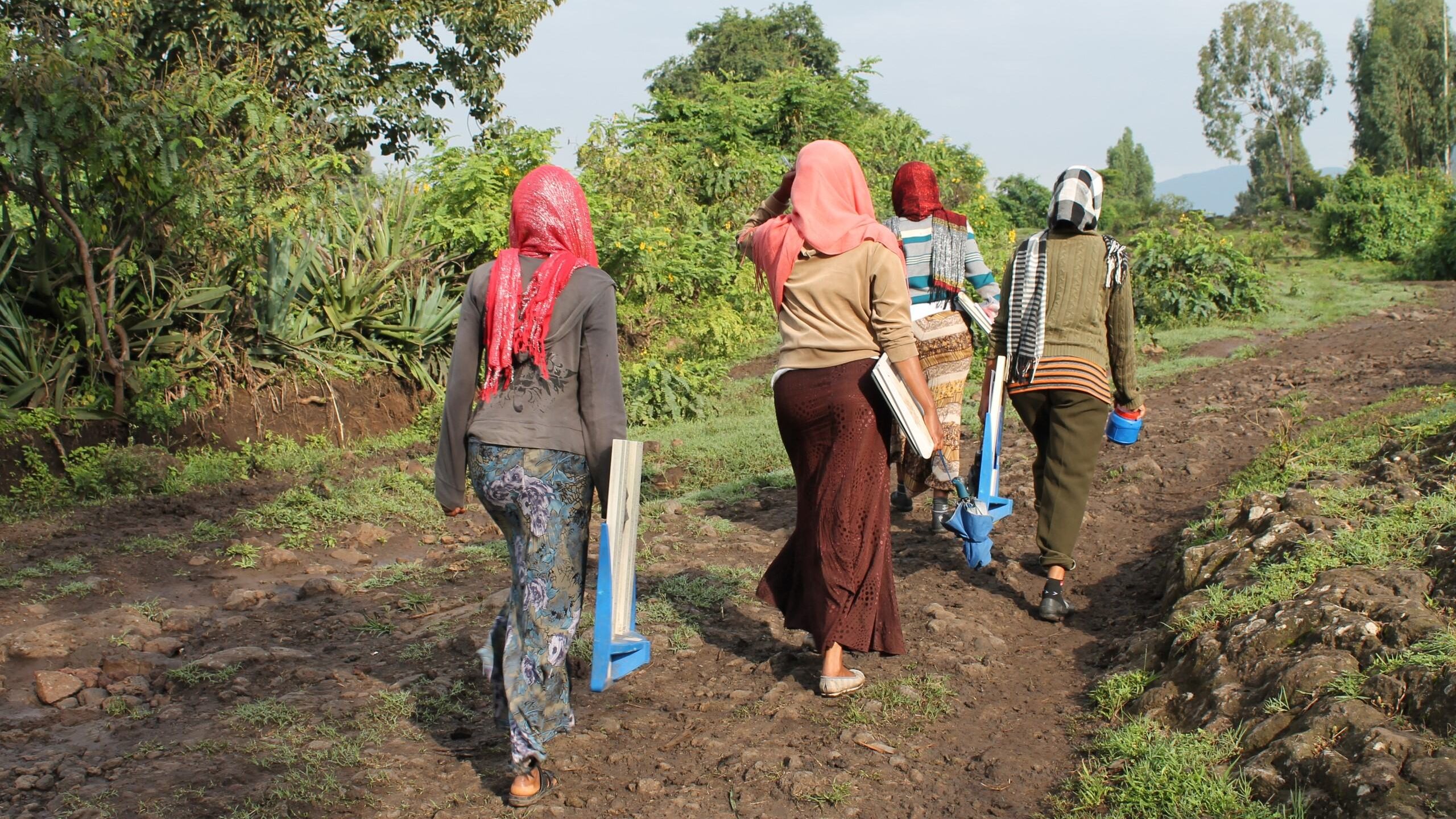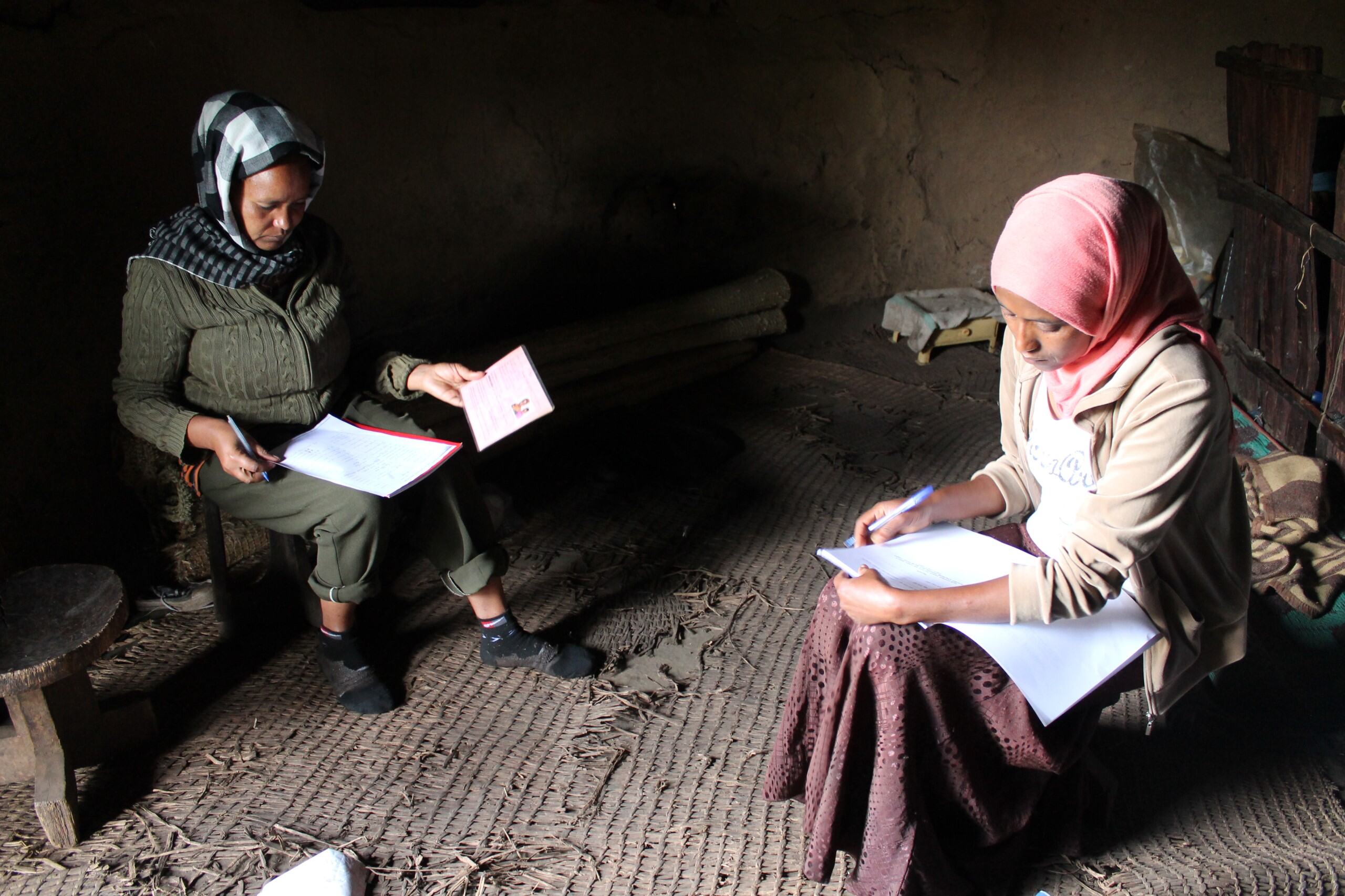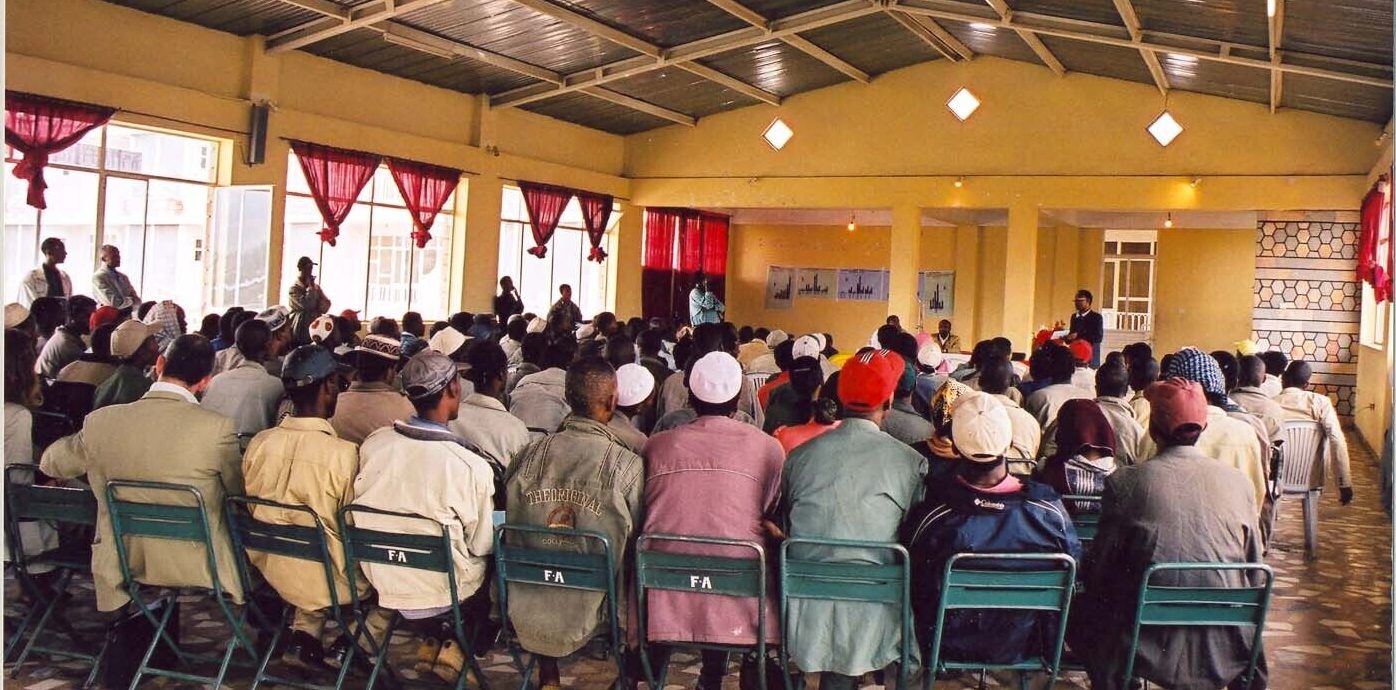Integrating mental healthcare into primary care in Low- and Middle-Income Countries
| Lead | King’s College London |
| REF Panel | A – Medicine, health, and life sciences |
| REF UoA | 4 – Psychology, psychiatry, and neuroscience |
| Locations | Ethiopia, India, Nepal, Nigeria, South Africa, Uganda |
| Funders | Department for International Development (DFID)1, European Commission (EC), National Institute of Mental Health (NIMH), Wellcome |
| Funds or grants | For Programme for Improving Mental Health Care (PRIME) – DFID2 Health Research Programme Consortia, for Emerging Mental Health Systems in LMICs (EMERALD) – European Union’s Seventh Framework Programme, for Africa Focus on Intervention Research for Mental Health (AFFIRM) – NIMH Collaborative Hubs for International Research in Mental Health |
| Partners | In Ethiopia: Addis Ababa University, Mental Health Service User Association. In India: Public Health Foundation. In Nepal: Transcultural Psychosocial Organization (TPO). In Nigeria: University of Ibadan. In South Africa: University of Cape Town (Overall lead institution for PRIME and AFFIRM), University of KwaZulu-Natal. In Uganda: Makerere University. In UK: London School of Hygiene and Tropical Medicine (LSHTM). International: World Health Organisation (WHO) |

“There was a genuine wish to involve service users meaningfully from the start, but sometimes research jargon or being part of a specialist group felt intimidating. And because of the stigma and long years of being not considered as a human being, it was very difficult for us to be vocal about our wishes. We touched base with the PI and Co-PI and requested more time to review proposals and reports and give our perspective. That boosted our self-esteem and empowered us to work in other areas.” LMIC-based research user
Although over 450 million people are affected by mental illness globally, there are big challenges in accessing treatment for people living in Low- and Middle-Income Countries (LMICs). This research explored the disparities in mental health care access between LMICs and HICs and how factors, including stigma, discrimination, and poverty, prevent those who need treatment from receiving it. Researchers worked with local partners in affected communities to explore effective ways for delivering evidence-based mental health care interventions. Following the success of the new approaches, several LMICs rolled out district and national mental health care plans. Research findings informed WHO guidance and training resources for non-mental health workers.
Key Impacts
Raising awareness on addressing mental health care access gaps
- A strong case for better evidence on mental health services and global access expansion supported a Lancet Commission on global mental health and sustainable development. The commission provided a blueprint to broaden the global mental health agenda in relation to promoting mental wellbeing, preventing mental health problems, and enabling recovery.
- Research informed the development of WHO’s Mental Health Gap Action Program (mhGAP) to support mental health care training of non-specialist health workers in low-resource settings. The program, implemented in over 100 countries, includes intervention guidelines, an operations manual, and a community toolkit to contextualise and tailor guidance.
- In Nepal, success of the integrated district mental health care plan was rolled out nationally by the Ministry of Health and adapted for five other LMICs.
Developing evidence-based local interventions to scale-up mental health care
- PRIME initiative collaborated with community organisations and health care workers in demonstration district sites in Ethiopia, India, Nepal, South Africa, and Uganda to co-create and assess evidence-based mental health interventions in primary care. This yielded successful approaches like task-sharing in Ethiopia and community detection tools in Nepal, boosting use of mental health services.
- The EMERALD consortium scaled up community-based and integrated mental health care and created a United Nations OneHealth Tool module to assist countries in cost-benefit analyses of implementing mental health care plans.

Underpinning research enablers


Support research user involvement and ownership over the research process and outputs
- Expanding impact through users’ active buy-in: High-level commitment by the Community Advisory Board in Ethiopia propelled the project’s impact in working with homeless individuals with mental illness at the district level. Their dedicated collaboration and resources catalysed this workstream and deepened engagement with the homeless population.
- Stimulating grassroot organisations: Research continuously encouraged service users to identify and lead with their own solutions. While unanticipated, this approach enabled the development of a new district-level service user association in Ethiopia.
- Empowerment’s ripple effect: EMERALD embedded activities to empower mental health service users from the outset, including their insights in decision-making, leading to increased confidence and representation in mental health services.
Address power imbalances in knowledge systems
- Recognising the input of local partners: This research focused on the need for proper recognition of all intellectual contributions. Ensuring authorship, acknowledgements, and/or financial compensation for research participation fostered equitable partnerships with local institutions and individuals. Service users became valued research partners, thus combating stigma and extending their community work.
Acknowledge added value of relationships and lived experience
- Successful cross-sector collaborations: Academic and non-academic partnerships boosted trust and credibility in research findings and enabled research uptake. In Ethiopia, active involvement of local universities, national government, district health offices, and service user groups supported effective co-production and output buy-in.
- Engaging with ‘hard-to-reach’ communities: Service user involvement raised local awareness, enriched research relevance and applicability, and developed inclusive solutions for real-life, local problems, reducing disparities in access to research benefits.
